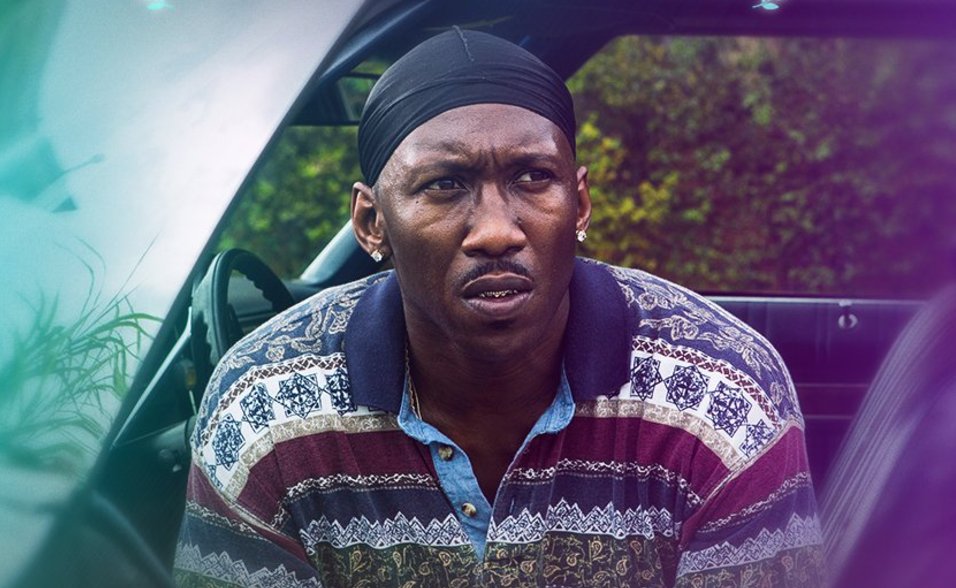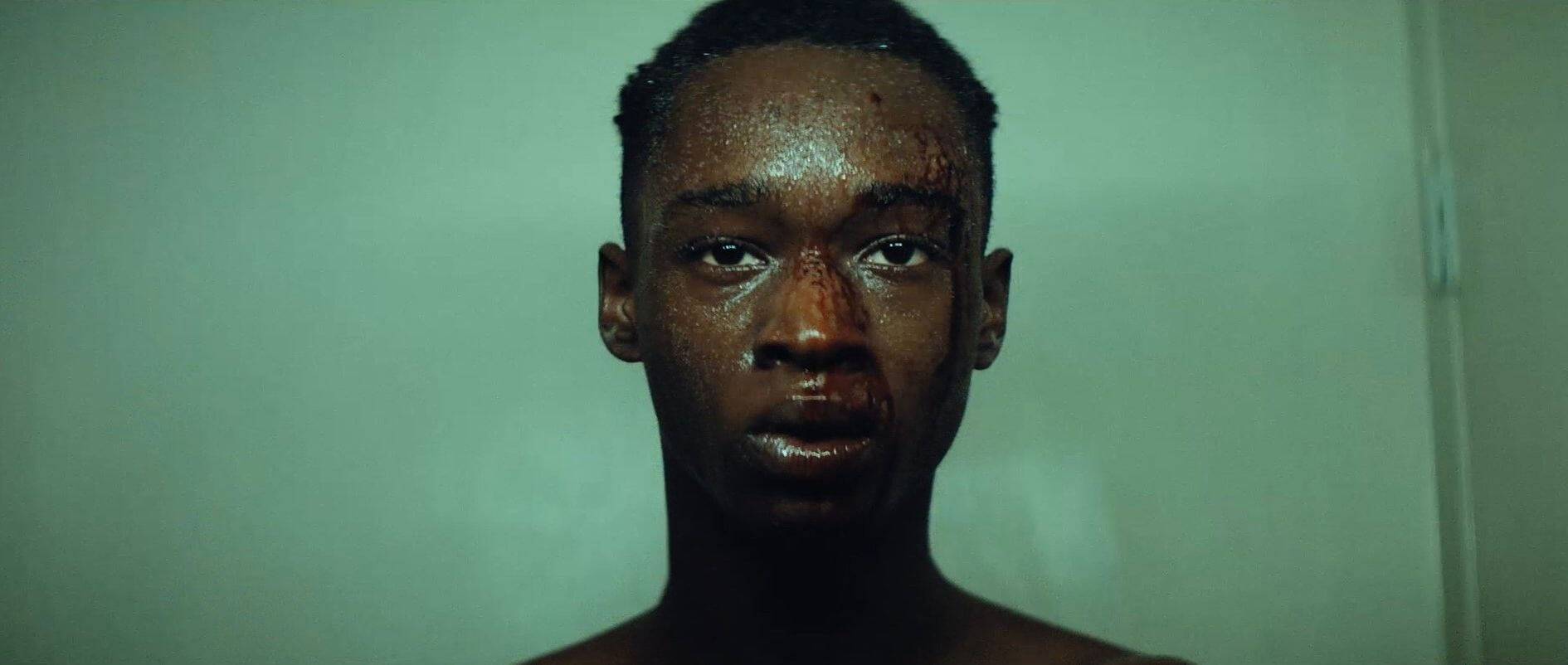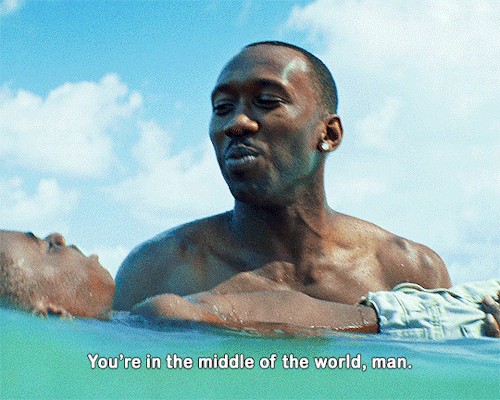I am going with 8.4/10 for MOONLIGHT directed by Barry Jenkin. Moonlight uses one man's story to offer a remarkable and brilliant crafted look at lives too rarely seen in cinema. Barry Jenkins made a film that urges the viewer to look past Chiron's outward appearance and his superficial signifiers of identity, climbing inside familiar stereotypes in order to quietly dismantle them from within... Moonlight doesn't say much. It says everything.
A major theme of Moonlight is the black male identity and its interactions with sexual identity. The film takes a form similar to a triptych in order to explore the path of a man from a neglected childhood, through angry adolescence, to self-realization and fulfillment in adulthood It stars Trevante Rhodes, André Holland, Janelle Monáe, Ashton Sanders, Jharrel Jerome, Naomie Harris, and Mahershala Ali.
The film presents three stages in the life of the main character; his youth, adolescence, and early adult life. It explores the difficulties he faces with his sexuality and identity, including the physical and emotional abuse he endures growing up. The narrative explicitly introspected the battered and tumultuous image of black identity and the dual aspects of their existence.
Based on the semi-autobiographical work of Tarell Alvin McCraney's unpublished semi-autobiographical play In Moonlight Black Boys Look Blue, the movie reinvented the under the hood storytelling in a triptych manner which emphasized the internal strife of existence, identity, and sexuality. The storytelling sighed away from the clichés of extortion and subjugation of one particular race by another privileged race, rather, it’s a more personal tell of existential assimilation of identity, sexuality and moreover, it’s a tale of the loss of love and compassion and the probability of finding it all over again.
Mr. Jenkin’s crafted a sublime piece of the visual masterpiece which is a more intimate tale of the social-sexual vulnerability of African Americans than its social dialogue. This is what I like to refer to as “PATHER PANCHALI” for the black race. The cinematographer captured masterfully the inherent emotions and minute spontaneous expressions with close-up shots and perspective shots. The belligerent use moonlight in many of his shots to summarize the narrative, conspicuously highlighting the visual art. The film amalgamates art film with hood film in its portrayal of African-American characters on-screen. Many technical film techniques are employed to juxtapose the characters and action of the scene, including the use of an orchestral score done in the melody of popular R&B and hip-hop motifs. This specifically deals with the theme of recuperating identity, especially in terms of blackness.

The character JUAN played by Marsha Ali became the external image of the black race the extravagant, masculine one, but with conscience of gold and a contradictory moral compass. In the beach scene with Chiron, Juan, his father figure in the film, emphasizes the importance of black identity. Juan says, "There are black people everywhere. Remember that, okay? No place you can go to the world doesn't get no black people. We were the first on this planet." As Juan speaks about the relevance and importance of the black experience, he also thinks about a time in his youth when a stranger told him "in moonlight, black boys look blue."

This is an image that the audience gets to see as the director, Barry Jenkins, supplies numerous shots of Chiron in the moonlight. Ali immortalized the character which, despite short tenure epitomized the whole narrative and embodied the soul of the black race projected with the grand demeanor and questionable morals. It's this grappling of morality and masculinity which resulted in social strife and economic degradation.
The editing seems fluid and evasive of time and space, the editing paired with the brilliant portrayals ventured us from the neglected childhood to angry, desperate adolescence of our protagonist, who kept up a vigorous appearance for his identity to matter. But like all the beautiful tell it showcased the importance of love and compassion in the life of any person, Chiron all his life has searched for vestiges of love and compassion to cement his identity and sexuality. At last like his namesake, our protagonist paid the price for being unique from his heart and to shed this he adopted a mechanism for approval of society, but hitherto salvaged by love and nostalgia.





Comments
Post a Comment